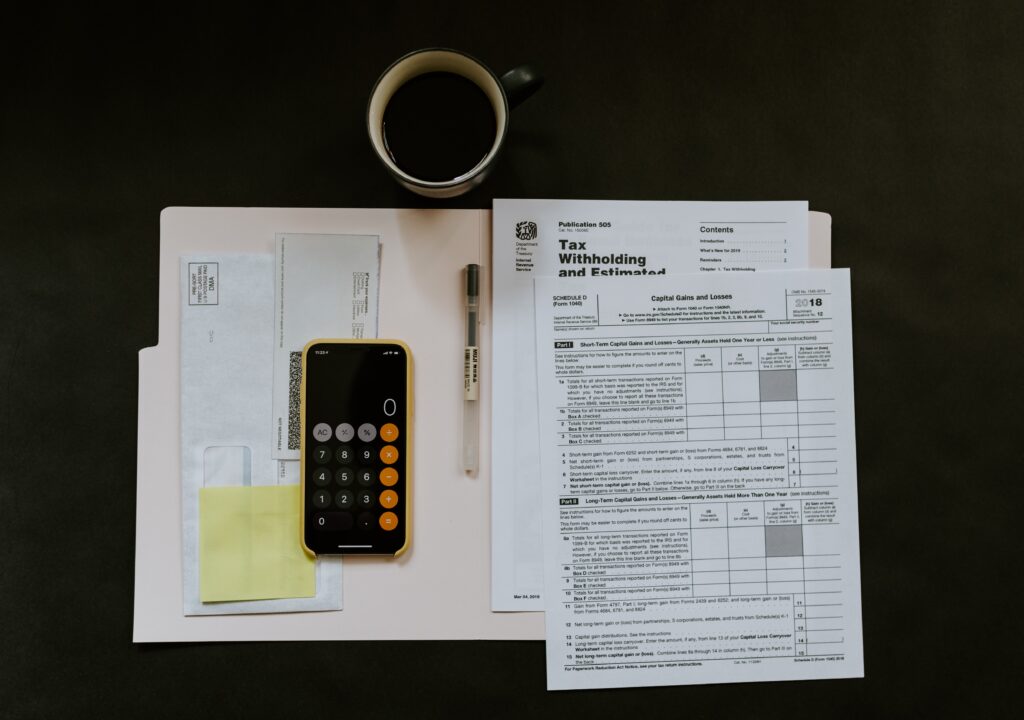For the average person the thought of filing taxes can be daunting. Making sure you have all of your paperwork, deductions, and income correctly laid out is stressful enough. But as a new or seasoned home owner there are several mistake we can be making when it comes to filing our taxes correctly.
Therefore as we all prepare to file our 2020 tax returns, we wanted to share the common home-related mistakes to watch out for, especially if you are taking any home office tax deductions. Tax pros say these common tax mistakes can cost you money or attract the IRS to your front porch.
1. Deducting the Wrong Year for Property Taxes
Remember that you take a tax deduction for property taxes in the year you (or the holder of your escrow account) actually paid them. Some taxing authorities work a year behind — which means, you are not billed for 2020’s property taxes until 2021. But that’s irrelevant to the feds. Therefore, you need to enter on your federal forms whatever amount you actually paid in that tax year, no matter what the date is on your tax bill. Dave Hampton, CPA, a tax department manager at the Cincinnati accounting firm of Burke & Schindler, has seen homeowners confuse payments for different years and claim the incorrect amount.
Tip: Taking this deduction requires that you itemize.
Make sure to speak with your tax preparer if you prepaid your 2021 property taxes in 2020, given the tax law changes.
- If you had a property tax bill in hand, that means the tax was assessed and you should have been able to deduct it on your 2020 tax return if you itemized.
- If your local taxing authority says it will accept prepayments but the tax hasn’t been assessed, just estimated, the payment likely wasn’t deductible on your 2020 tax returns.

2. Confusing Escrow Amount for Actual Taxes Paid
If your lender escrows funds to pay your property taxes, don’t just deduct the amount escrowed. The regular amount you pay into your escrow account each month to cover property taxes is probably a little more or a little less than your actual property tax bill. Your lender will adjust the amount every year or so to realign the two.
For example, your tax bill might be $1,200, but your lender may have collected $1,100 or $1,300 in escrow over the year. Deduct only $1,200 or the actual amount of property taxes paid that is noted on the Form 1098 that your lender sends. If you don’t receive Form 1098, contact the agency that collects property tax to find out how much you paid.
3. Deducting Points Paid to Refinance
In many cases, you can deduct in full the points you paid your lender to secure your mortgage for the year you bought your home, if you itemize. However, if you pay points in connection with a refinance, you must deduct the points over the life of your new loan.
For example, if you paid $2,000 in points to refinance into a 15-year mortgage, your tax deduction is $2,000 divided by 15 years, or $133 per year.

4. Miscalculating the Home Office Tax Deduction
There are two ways to calculate the home office deduction. One is complicated, has to be recaptured if you turn a profit when you sell your home, and can pique the IRS’s interest in your return. But it also can amount to more of a deduction than the simpler method.
If you don’t care to claim actual costs, which you do under the more complicated method, you can use the simplified home office deduction. If you’re eligible, you can deduct $5 per square foot up to 300 feet of office space, or up to $1,500 per year.
5. Failing to Track Home-Related Expenses
If the IRS comes a-knockin’, don’t be scrambling to compile your records. File or scan and store home office and home improvement expense receipts and other home-related documents as you go.
6. Forgetting to Keep Track of Capital Gains
If you sold your main home last year, don’t forget to report capital gains on any profit above the excluded amounts. You can typically exclude $250,000 of any profits from your income (or $500,000 if you’re married filing jointly).
So, if your cost basis for your home is $100,000 (what you paid for it plus any improvements) and you sold it for $400,000, your capital gain is $300,000. If you’re single, you owe taxes on $50,000 of gains.
However, there are minimum time limits for holding property to take advantage of the exclusions, and other details. Consult IRS Publication 523. And some high-income earners could get hit with an additional tax.
7. Claiming Too Much for the Mortgage Interest Tax Deduction
For the tax year 2020, taxpayers are allowed to deduct mortgage interest on $750,000 of home acquisition debt.

Interest on home equity loans and second mortgages continues to be deductible, but only if the proceeds of such loans are used to substantially improve the home that secures the loan. Interest on home equity loans that were used for other purposes, such as student loans, cars, vacations, are no longer deductible.
And the amount of all mortgage loans (first, second, home equity, and loans for a second home) can’t exceed the $750,000 or $1 million limits.
Please Note: This article provides general information about tax laws and consequences, but shouldn’t be relied upon as tax or legal advice applicable to particular transactions or circumstances. Consult a tax professional for such advice.
